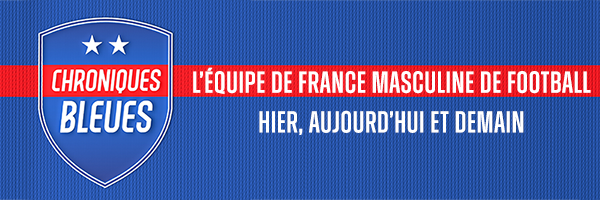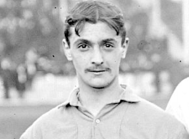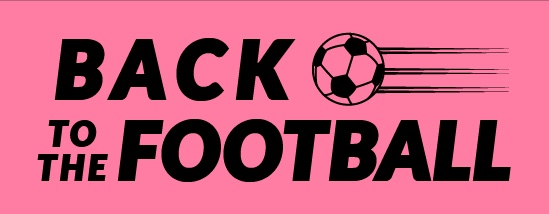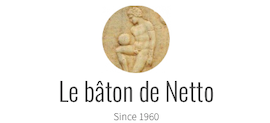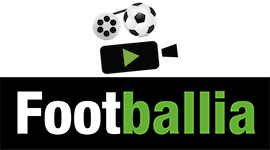Lire sur le site de Soccer Nostalgia The Soccernostalgia Interview-Part 46
Lire la version en anglais. English version here
Cet article fait partie de la série Dialogue avec Soccer Nostalgia
Soccernostalgia : Michel Hidalgo a commencé la saison 1982/83 après une Coupe du monde positive. Il prépare une équipe pour l’Euro 1984 en deux ans en France. Pour la première fois sous Hidalgo, il n’y avait pas de qualification à craindre, y avait-il une ambiance plus calme avec l’équipe nationale ?
Bruno Colombari : Oui, sans aucun doute. La Coupe du monde avait été une réussite, le sélectionneur était assuré de rester en poste jusqu’en 1984, il n’avait que des amicaux à gérer. Incontestablement, cette saison était la plus facile qu’il ait eu à gérer. Il avait ainsi l’occasion de faire des essais, de trouver des solutions pour ses points faibles (gardien, buteurs, équilibre défensif) et de travailler ses points forts (arrières latéraux, milieu de terrain).
La saison débute le 31 août 1982, par un match amical à Paris contre la Pologne, le même adversaire lors de la Coupe du monde. Dans un match manquant de nombreux titulaires (Platini, Six, Giresse, Lacombe, Rocheteau, Battiston), Jean-Marc Ferreri décroche sa première sélection. La France s’est inclinée (0-4) à domicile avec Jean-Luc Ettori brûlant son dernier joker. Comment la performance a-t-elle été perçue compte tenu des absences ?
Un peu dans l’indifférence. Ce match est arrivé beaucoup trop tôt après la Coupe du monde et objectivement ne servait à rien, puisqu’il n’y avait pas d’échéance proche à préparer. Il aurait été plus judicieux de le supprimer, d’autant plus que les hasards du calendrier proposaient un nouveau France-Pologne. Rien n’allait dans ce match : un Parc des Princes aux deux tiers vide, une équipe de France la tête ailleurs, même si la défense est la même que celle de Séville, et effectivement un Jean-Luc Ettori complètement dépassé qui encaisse trois buts en sept minutes. D’ailleurs, c’est la dernière fois que les Bleus perdent un match par quatre buts d’écart, et depuis ils n’ont encaissé quatre buts que deux fois, en 2008 (Pays-Bas, 1-4) et 2015 (Belgique, 3-4). C’est dire si de genre d’accident est très rare !
Le 6 octobre 1982, la France accueille la Hongrie à Paris. Hidalgo a expérimenté la formation en 4-3-3 avec Platini comme deuxième attaquant. La France a gagné (1-0) avec Laurent Roussey jouant son premier match et marquant le but vainqueur. Que pensez-vous de ce match ?
En fait, c’est le carré magique de la Coupe du monde qui est reconstitué avec Tigana, Genghini et Giresse, et Platini en position haute aux côtés de Roussey. Ce dernier avait déjà joué une fois, en 1980 contre la Juventus, mais le match n’était pas officiel et ne comptait pas pour une sélection. Roussey avait fait un début de carrière brillant à Saint-Etienne, mais il n’a jamais confirmé au plus haut niveau. Hidalgo laisse encore une chance à Jean Castaneda, mais ce sera sa dernière sélection, sa neuvième, comme Ettori. La sélection hongroise a commencé son déclin et ne représente pas une opposition très consistante.
Le 10 novembre 1982, la France se rend à Rotterdam et bat la Hollande (2-1). L’aspect le plus important de ce match a été l’introduction de Luis Fernandez. Le dernier morceau du « Carré Magique ». Quelle était l’importance de cela et vos réflexions sur ce match ?
Les Pays-Bas, qui avaient manqué la Coupe du monde en Espagne, étaient en phase de reconstruction, et ne retrouveront le plus haut niveau que lors de l’Euro 1988. Mais la jeune génération arrive avec Franck Rijkaard, Ruud Gullit et Wim Kieft, 20 ans tous les trois. Marco Van Basten arrivera l’année suivante. Michel Hidalgo essaie un nouveau gardien, Jean-Pierre Tempet (son quatrième en 1982). Et effectivement, c’est ce soir-là que Luis Fernandez arrive en sélection, et une fois en place, il n’en bougera plus puisqu’il va jouer 34 matchs consécutifs, jusqu’à la demi-finale de la Coupe du monde 1986. Il profite de la saison compliquée de Bernard Genghini à Saint-Etienne et surtout, rééquilibre le milieu de terrain français. Rétrospectivement, on se dit qu’il aurait eu sa place à la Coupe du monde, peut-être pas comme titulaire, mais imaginez-le remplacer Genghini à Séville en deuxième mi-temps…
Le 16 février 1983, la France se rend à Guimaraes pour affronter le Portugal. La France a confortablement battu une pauvre équipe portugaise (3-0). Maxime Bossis a débuté comme libéro pour la première fois pour l’équipe nationale en l’absence de Trésor. Était-ce le match de référence de Bossis ?
En tout cas, c’est là qu’il montre ce qu’il peut apporter en défense centrale, surtout que les côtés sont bien occupés avec Battiston à droite et Amoros à gauche. C’est surtout la défense portugaise qui a pris l’eau, alors que côté offensif, il y a déjà Sousa, Chalana, FernandoGomes et Jordao, qu’on retrouvera à l’Euro en 1984. Et Platini fait un festival, avec trois passes décisives dont deux en une minute, pour Stopyra et Ferreri qui se présentent devant Bento. C’est vrai qu’à ce moment-là, on imaginait mal le Portugal en demi-finale de l’Euro…
Le 23 mars 1983, la France accueille l’Union soviétique au Parc. Le match s’est terminé sur un match nul (1-1). Comment la performance a-t-elle été vue ?
C’était l’occasion de découvrir Rinat Dasaev, que les Bleus avaient déjà croisé à Moscou en 1980. Un magnifique gardien qui avait brillé en Espagne en 1982, mais qui s’incline devant Luis Fernandez sur une passe de Platini. Luis Fernandez qui le battra encore, sur un but assez semblable, en 1986 au Mexique. L’URSS était une grande équipe à l’époque, même si elle n’avait pas encore ses stars ukrainiennes Belanov et Zavarov. Dommage qu’elle ait manqué l’Euro 1984. C’est d’ailleurs le Portugal qui l’a éliminée, après avoir encaissé un 0-5 à Moscou.
Le 23 avril 1983, la France accueille la Yougoslavie à Paris au Parc. France. Hidalgo a sélectionné les débutants Yvon Le Roux et José Touré, « Le Brésilien ». Ils ont tous deux marqué lors d’une victoire impressionnante (4-0) contre une équipe yougoslave en sous-effectif. Était-ce considéré comme la meilleure prestation française de la saison ?
Certainement, mais c’était un match facile contre une équipe yougoslave très diminuée. Le Roux était un stoppeur très physique, puissant de la tête et complémentaire de Bossis, qui était beaucoup plus technique. Un peu comme le duo Blanc-Desailly de 1998, ou Varane-Umtiti de 2018. Et Touré était à ce moment-là dans une forme extraordinaire avec le FC Nantes, avec laquelle il allait être champion de France et marquer un but fabuleux en finale de la Coupe de France. Touré, c’est un joueur qui me laisse énormément de regrets. Avec Fernandez et Bats quelques mois plus tard, c’était la troisième découverte essentielle de Michel Hidalgo entre 1982 et 1984. Finalement, ça n’a pas eu de conséquence à l’Euro, mais il a beaucoup manqué en 1986.
La France a terminé la saison avec un match de gala célébrant le 75e anniversaire de la Fédération luxembourgeoise de football. Une France contre la Belgique en sous-effectif s’est soldée par un match nul (1-1). Que pensez-vous de ce match ?
Il y aurait eu de quoi faire une équipe entière avec les forfaits, plus ou moins diplomatiques car il est vrai que ce match, joué un 31 mai, n’intéressait pas grand monde. on retiendra que Didier Six a été capitaine pour la première fois et qu’il a marqué le but français, son treizième et dernier en sélection. On ne le sait pas encore, mais les Bleus viennent de rencontrer coup sur coup, en 1983, trois de leurs adversaires de l’Euro à venir. Ils joueront contre les deux autres (Espagne et Danemark) quelques mois plus tard.
Michel Platini, lors de sa première saison à la Juventus, a été absent de nombreux matches. Dans la seconde moitié de la saison, il a élevé son statut après s’être adapté à la Serie A. Quelle importance cela a-t-il eu pour l’équipe nationale ?
Une culture tactique différente, évidemment. En Italie, Platini a appris à jouer pour conserver un résultat, à défendre, à se battre sur chaque ballon. Et comme il a été contesté en début de saison parce qu’il arrivait dans une équipe qui comprenait de nombreux champions du monde, et qu’il lui a fallu quelques mois pour s’intégrer, ça l’a obligé à se dépasser, à être moins naïf, à être plus malin. Il y avait très peu de joueurs français à l’étranger à l’époque (lui et Six, qui jouait à Stuttgart), et l’équipe de France a gagné en maturité avec ce que Platini a appris en Italie. Dommage qu’il n’y soit pas allé un an plus tôt.
Quelle est votre évaluation des nouveaux joueurs tels que Fernandez, Ferreri, Le Roux et Touré ?
Sur les quatre, le seul qui s’est imposé comme titulaire et sur la durée est Luis Fernandez, pourtant dans un secteur de jeu ultra concurrentiel au milieu de terrain. Il a contribué à apporter de l’agressivité, de la combativité tout en soutenant la comparaison au niveau technique avec Jean Tigana. Yvon Le Roux a servi d’intérim entre le déclin de Marius Trésor et l’arrivée en défense centrale de Patrick Battiston, mais on a vu ses limites à l’Euro, notamment contre le Portugal. José Touré a été pénalisé par deux blessures au plus mauvais moment, qui l’ont privé d’Euro et de Coupe du monde, puis il s’est perdu en club et n’a pas pris le relais de Platini et Giresse en sélection. Jean-Marc Ferreri était très prometteur au début des années 1980, mais il a calé au niveau international et sa carrière en équipe de France reste décevante.
Que pensez-vous des expérimentations pour les postes d’avant-centre et d’ailier ?
La mise en place du 4-4-2 a condamné le statut d’ailier à l’ancienne, comme l’étaient Rocheteau et Six, lesquels ont été tous deux en grande difficulté à l’Euro. Et il était toujours aussi difficile d’être avant-centre en équipe de France avec un Michel Platini qui était à la fois à la construction et à la finition, et qui prenait toute la place. Ce n’est pas un hasard, d’ailleurs, si après avoir écarté Bernard Lacombe suite à la Coupe du monde 1982, Michel Platini l’a rappelé juste avant l’Euro : c’était celui qui était le plus compatible avec Platini. Stopyra a été intéressant, mais il faudra attendre après l’Euro pour le voir revenir et s’installer en attaque, avec Rocheteau qui évoluait en avant-centre au PSG.
Le poste de gardien de but était-il toujours le plus gros point d’interrogation, puisque Jean-Luc Ettori, Jean Castaneda et Jean-Pierre Tempet ont tous été essayés mais n’ont pas convaincu ?
Oui, même si des trois, Tempet avait été le meilleur, avec des performances très correctes (trois buts encaissés en cinq matchs). Mais il avait le handicap de jouer dans un club de milieu de tableau (Laval) où sa progression était limitée. Il faudra attendre encore un peu et l’arrivée de Joël Bats en septembre pour compléter le puzzle qui gagnera l’Euro. C’est là où on mesure l’importance d’un très grand gardien de but dans une équipe nationale. Avec Barthez en 1998 et Lloris en 2018, c’est bien plus facile !
Quel bilan faites-vous de la saison et des essais d’Hidalgo ?
Même si l’adversité a été assez peu relevée, l’équipe de France a trouvé une certaine stabilité au cours de cette saison, si on met de côté le premier match contre la Pologne. Elle n’a pas fait des étincelles devant (sauf contre la Yougoslavie), mais l’équilibre défensif a été bien meilleur qu’auparavant. A ce moment-là, il est difficile de dire quelle place elle pourra jouer à l’Euro, mais elle prend confiance. De ce point de vue, le fait que Michel Hidalgo ait pu travailler sur la durée sans la pression du résultat, pour la première fois depuis sept ans, a donné aux Bleus un avantage certain par rapport aux futurs adversaires de l’Euro qui luttent dans la phase qualificative, et qui, pour certains, vont échouer (Italie, URSS, Angleterre, Pologne).

